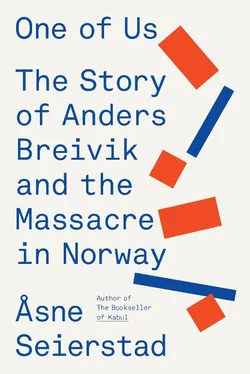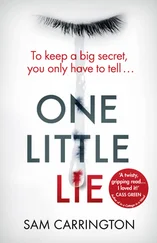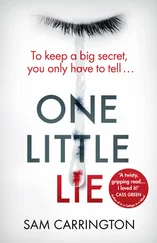It was the most beautiful sign they had ever seen. The old Dahl cabin had gone; this hut was new and it needed a new name: Simonstua – Simon’s Cottage.
* * *
Gunnar sat alone on the veranda. The sign hung behind him. Inside, Tone was fast asleep. Håvard was singing at a wedding.
The black hole still took up far too much space. They had to hold on tight so it would not swallow them up.
He was still sliding.
He slithered. He stumbled.
The sense of loss could drive him insane.
But they had started to see the starlit sky.
And the northern lights. And all the beauty around them.
‘Are you in your weaver’s heaven, Mum?’
It was as if she heard his voice. He always used to come dashing in, give her a hug and comment on the pattern in the warp before he charged off again. From the earliest of ages he had seen his mother weaving, her fingers knotting threads and one colour changing to another. He had admired how the threads made such lovely patterns.
Gerd Kristiansen was much in demand as a weaver in Bardu. Her tapestries hung on walls all around the village, served as bedspreads in Finnsnes and table runners in Salangen.
For her, weaving was like entering another world. She was able to collect her thoughts at the loom and find a breathing space after heavy shifts as an auxiliary nurse at Bardu care home.
One spring day her son had come into the room she had set aside as her weaving workshop. He stood there looking at her various pieces of work.
‘Mum, can you weave one for me?’
‘Oh, would you like one?’ his mother answered happily. ‘What colours do you want?’
‘Blue, blue like the sky,’ he replied.
She had spent a long time on it. She had mixed blue and white so his bedcover would turn out a real sky blue. When it was done, it was exactly as she had hoped. It was like lying in the grass on a fine summer’s day looking up as wisps of cloud went by.
She had just finished it. Her son had run a hand over the soft blanket and thanked her, said how wonderful it was. Before he left.
* * *
That was two years ago.
In the first months she could not bring herself to touch the loom.
Now she was gradually starting again. But it was hard going, her fingers were stiff and slow and it wore her out.
Two years had passed, and life had only got worse.
The sense of loss, the emptiness, the lonely days. It was not true that grief faded. It grew. Because now it was final; he was never coming back.
Gerd was scared of meeting people, because it was embarrassing if she cried. It could come over her at any time, anywhere. She felt as though everyone around her thought things ought to be better by now. She could see it in people’s eyes. Their looks said: You’ve got to move on.
Folk would ask her: ‘Are you back at work now?’
As if that were any kind of measure. No she wasn’t. Perhaps she could have coped, were it not for the fact that her job, too, meant dealing with life and death. At Bardu care home, old people were dying all the time. She could not take it. They were old and they died natural deaths, as was the way of things. But even so, they died. She could not take any more death.
The care home management had been flexible. She could come and go as she wanted, do shifts here and there if she felt up to it.
Her son was always crashing about in her head.
Viggo missed him constantly.
Their memories went in circles.
They buzzed round and round. They were there in their dreams. They were there in their sleepless nights.
Gerd called life ‘existing minute by minute’. Every single minute felt like a battle. Time went on but life had stopped. Meanwhile, everyone else said they would have to build it up again. But how could they build up their life without their boy? As their elder son Stian put it when he was fed up with all the talk about Norway having won out over evil and hatred, ‘I shall never win over anyone as long as I’m a little brother short.’
The roses, rainbows and democracy that were supposed to defeat the perpetrator only increased their sadness. It made them sick to hear party leaders say that Labour was the victim of the massacre. They were upset by AUF members’ talk of ‘reclaiming Utøya’ before the murder victims had even been buried.
They could not forget AUF leader Eskil Pedersen’s words on the first day of the trial: ‘The pain is less now.’
Hadn’t he talked to any of the bereaved, they wondered. Didn’t he know anything about how the parents of his dead members were feeling? His The pain is less now , a bare nine months after the killings, made it impossible for them to listen to any of the other things he had to say.
The Kristiansen family felt bitter about a lot. First, the AUF. Anders had set up Bardu Workers’ Youth League as a fifteen-year-old in 2008. He had been leader of the local branch for two years. When he became the head of the Youth County Council for Troms, the year after Simon and Viljar’s attempted coup, he stepped down as leader of Bardu AUF and became the treasurer instead.
When Eskil Pedersen came to visit Bardu the year after Anders’s death, the parents found out about it from the local paper. In Troms Folkeblad they saw the pictures of the AUF leader with new young members. No one had notified them. They had not had so much as a phone call to say that he wished to express his condolences to the parents of the late AUF treasurer in Bardu. No, Anders was dead, so he did not matter any more; that was how it felt to them.
The AUF had planned to mark the first anniversary of the massacre, 22 July 2012, on Utøya itself. The plans excluded the parents. They could come another day.
What? Were the parents not to be allowed to commemorate their sons and daughters a year on, in the place where their children had been killed?
No, because Utøya was the AUF’s island.
Were there no grown-ups in the Labour Party? Were there no manners? No, the Labour Party just said it was the AUF’s island and the young must be the ones to decide. In the end, the AUF gave in to pressure from the support group for the bereaved and they reached a compromise: the parents would be permitted to come at eight in the morning. But they had to make sure they were off the island before the surviving AUF members, those who had defeated the perpetrator, arrived. The last boat would be leaving the island at 11.45. After that, no parents were allowed to be there, because the young people were going to recreate the Utøya feeling .
‘I would so much have liked to be there, to step into her world,’ one father from Nordland county commented to the Norwegian Broadcasting Corporation. He had lost his sixteen-year-old daughter and wanted to ‘step into the atmosphere, be there together with the AUF youngsters’ to try to understand what it was about the summer camp that made his girl look forward to it all year. He simply wanted to be on the island along with the AUF crowd.
‘I want to look for what was so important to my daughter here,’ said a mother. ‘Was it that little?’
Gerd and Viggo could not bring themselves to go to Utøya once they had seen the terms on which they would be allowed to attend. They did not feel welcome. Tone and Gunnar decided to go down anyway. Tone later said that the anniversary was the worst thing she had been through since Simon died. Making a hasty visit to the cliff, laying flowers by the rock and then hurrying off the island because the survivors were due to arrive, getting off the ferry at the Thorbjørn ’s jetty and having to run the gauntlet of that merry throng of AUF members tripping over themselves to get aboard. Tone had had to duck her way through the crowd of young people. She felt they avoided meeting her eye. Maybe it was all part of being young, not dwelling on the dismal side of things. Being thoughtless.
Читать дальше












